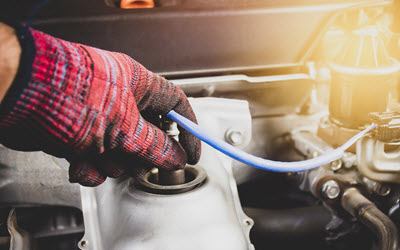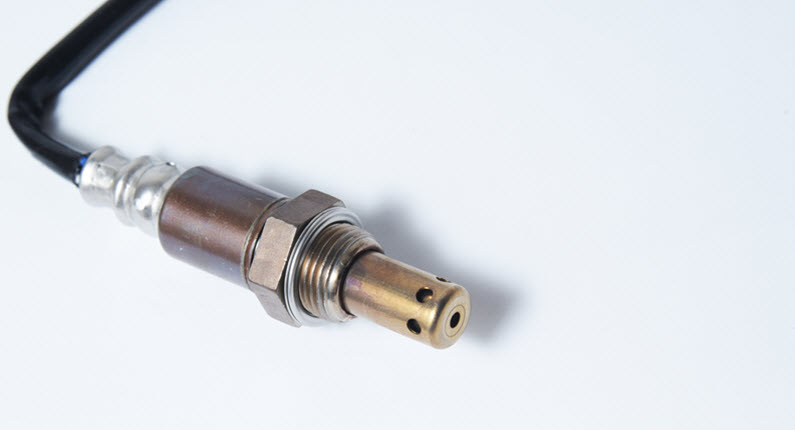Your Audi may be an efficient and environmentally-friendly vehicle, but if something happens to its oxygen sensor, those excellent qualities will disappear in a hurry. Not only does the oxygen sensor help reduce the amount of pollution that your vehicle produces, but it also ensures that your Audi maintains peak performance levels. As such, the oxygen sensor plays a vital role in your vehicle’s functioning, which means that sensor failure should not be taken lightly.
The Purpose of the Oxygen Sensor
Your Audi’s oxygen sensor serves two important purposes: monitoring your vehicle’s emissions and helping your vehicle achieve optimal performance. In order to do this, it measures the amount of oxygen that enters the exhaust system after combustion. If this oxygen level falls too low or grows too high, the sensor notifies your vehicle’s computer, which then adjusts the air-to-fuel ratio of the mixture entering the engine. This ensures that your vehicle’s engine receives enough oxygen to efficiently combust its fuel but not so much oxygen that its emissions become filled with nitrous oxide.
Common Causes of Oxygen Sensor Malfunctions
Because the oxygen sensor is constantly exposed to various chemicals, the main cause of sensor failure is corrosion. More specifically, the three most common types of oxygen sensor corrosion include:
- Orange/rusty patches, which are caused by lead exposure
- White patches, which are caused by coolant and/or silicone sealant contamination
- Dark patches, which are caused by rich fuel
Although these types of contamination are caused by different materials, they all lead to similar consequences, as they prevent the sensor from accurately measuring oxygen levels in your vehicle’s exhaust.
In addition to corrosion, regular wear and tear may also cause your Audi’s oxygen sensor to break down. Over time, this electrical component may start to lag, which will reduce the efficiency with which your vehicle’s computer can adjust the air-to-fuel ratio. This will decrease the efficiency of the engine. As such, it is important that you keep up with your Audi’s recommended maintenance schedule, as doing so will allow you to replace a lagging oxygen sensor before it fails completely.
Diagnosing a Damaged Sensor
Regardless of whether your Audi’s oxygen sensor is contaminated or just lagging due to old age, it is likely to present several clear symptoms of failure. The most common sign of oxygen sensor problems is illumination of the check engine light. Because the oxygen sensor is directly connected to your vehicle’s computer, any issues with the system should immediately illuminate your vehicle’s check engine light. Of course, the check engine light can also turn on for a variety of other reasons, so if your Audi’s check engine light is on and you’re not sure why, you may want to look for other signs of oxygen sensor failure to confirm the problem.
One of these additional signs to look out for is decreased fuel economy. If your vehicle’s oxygen sensor starts to malfunction, the computer will not be able to adjust the air-to-fuel ratio to fit the engine’s needs. As such, your vehicle’s fuel mixture may run too rich, which means it will burn more fuel to go the same distance. When you are spending more money than expected at the gas pump, you may want to have a mechanic examine your vehicle’s oxygen sensor.
Finally, a third common symptom of oxygen sensor failure is a failed emissions test. As previously mentioned, the oxygen sensor plays an important role in preventing toxic chemicals from entering the exhaust pipe. If your vehicle’s oxygen sensor fails, your vehicle may emit surprising amounts of pollutants and it may cause your Audi to fail a routine emissions test. Accordingly, a failed emissions test is a strong signal that something may be wrong with your vehicle’s oxygen sensor.
Your One-Stop Shop for Audi Repair
If you suspect your Audi’s oxygen sensor is broken,  don’t hesitate to contact our professionals at Motor Cars International. For years, we have provided convenient, high-quality service to customers in Easton, Norton, Raynham, Sharon, and Bridgewater, MA. We are dedicated to helping you keep your vehicle running smoothly and efficiently, so give us a call today or stop by our shop to find out what we can do for you.
don’t hesitate to contact our professionals at Motor Cars International. For years, we have provided convenient, high-quality service to customers in Easton, Norton, Raynham, Sharon, and Bridgewater, MA. We are dedicated to helping you keep your vehicle running smoothly and efficiently, so give us a call today or stop by our shop to find out what we can do for you.

